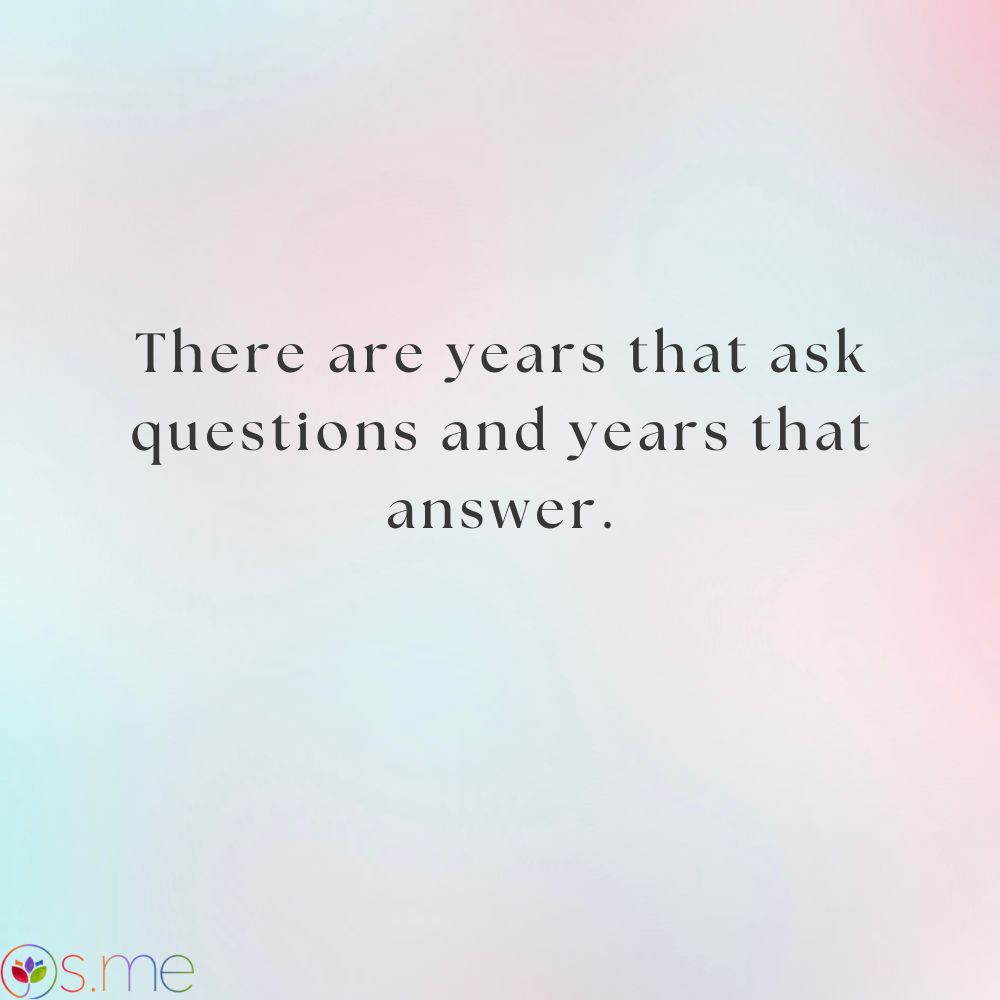
Deep questions about life
There are many questions about life that still baffle us. Even though we may have some answers, there are always more questions. What is the meaning of life? Why do we exist? Is there a God? What happens after death?
These are just a few questions people have asked throughout history, which are still in question today.
Some people spend their whole lives trying to find the answers to these questions, while others remain content with not knowing. Philosophers and spiritual people have long been interested in exploring these questions, and monks dedicated to seeking truth spend their lives pondering them.
No single answer will satisfy everyone, but exploring the various thoughts and ideas on this topic is interesting. Whatever your beliefs, it’s essential to question everything and keep an open mind.
After all, we may never know for sure what the answers are. But that doesn’t mean we can’t speculate and explore all possibilities!
What is the meaning of life?
Answers to life are out there waiting for us to find them. The meaning of life is an elusive question that has yet to be fully understood.
There’s no easy answer to the question of what the meaning of life is. But one thing is for sure: the meaning of life is something we must discover for ourselves. It’s a journey that takes us on different paths and allows us to learn and grow. Whatever the meaning of life is for you, it’s something worth exploring. Because, in the end, it’s what makes our lives truly worthwhile.
Many do not fall asleep because they are in cozy beds or because their stomachs are full; they do so because their body can remain awake no longer, because this is the only way to forget about the hunger of the stomach, the harshness of the world, to give temporary rest to their endless suffering before the morning sounds scornfully play into their ears before hard reality opens their eyelids exposing them to another day of hunger, impoverishment and lacking. I read somewhere:
“The meaning of life is leading a meaningful life.”
When your existence helps someone else in any possible way, your life could not be more meaningful; it could not be more important, and your contribution could not be any greater.
Be grateful. Lead a meaningful life. Give, and ye shall receive.
Source: What is a meaningful life?
What happens when we die?
Despite what many believe, we do not simply cease to exist when we die. Instead, what happens to us after death largely depends on our religious beliefs.
For Christians, death marks the beginning of eternal life in heaven. Muslims believe the soul goes through a judgment to paradise or hell. Hindus and Buddhists have a more complex view of the afterlife, but both religions believe in reincarnation or the cycle of rebirth; what happens after death remains a mystery for those who do not subscribe to any particular religion.
Some say that we simply return to the Earth from whence we came, while others believe we move on to another plane of existence. Ultimately, what happens when we die is something that we may never fully understand.
First of all, there’s most definitely rebirth. There is a thing called rebirth. That is there because I have seen my past life. Rebirth is there, that’s for sure. Does everybody come back at the same time? No. When a soul leaves a body. The soul becomes a supreme soul. You can create your world. This world is a creation of collective consciousness.
Your world is a creation of your consciousness. For example, if you are feeling happy inside, everything feels great. If you feel sad, the whole world looks blue and gloomy.
When somebody passes away, at that time, depending on
(a) the final state of mind, the final thought they had when they left their body,
(b) what was their training like throughout their life, their mindset, and
(c) their karmic account, what it is looking like
Source: Life after Death
Why do bad things happen to good people?
Why do bad things happen to good people, and how can we find happiness in bad times?
People who have suffered the most can be some of the most loving and generous people on earth; those who have experienced great injustice sometimes cause more suffering for others. Our situation does not determine our character, nor are we predestined to receive any particular good or evil from life. We may not know why something has happened, but we can learn from it as long as we are open to understanding.
The saying that “God never gives you more than you can handle” is a way to tell someone is doing awful things that they deserve such treatment, that it’s a part of some divine plan, or that it will all be for their good in the end. That’s a message to those who have been dealt a bad hand or lost what seems like everything that they should just keep quiet and suffer in silence.
The truth is: pain is not always punishment, and tragedy is not always part of some master plan. Sometimes bad things just happen, and there isn’t anything anyone could have done about it.
We are given free will, and we make daily choices that affect our future and our experience in life. When something happens to you, it may be tempting to think that it’s God punishing you for something, but that is not always the case. If you want to find happiness in life, don’t let pain or suffering define who you are and your life. Some things happen in this world that has no explanation, and no amount of prayer will change them.
There are no easy answers to why bad things happen to good people, but there are some questions that can help you process your emotions when tragedy strikes.
Why didn’t God stop this from happening?
The best answer to this question is that we don’t know what God’s plan for us is—and even if we did, we’d never fully understand it. It’s often more comforting to assume there was a reason and things happened according to plan than to feel like there was no meaning behind the tragedy and that bad things simply happened for no reason.
If you’re looking for a specific purpose in tragedy, try asking yourself:
- What does this mean for me now?
- What does this mean for others around me?
- Is there a lesson here I should learn?
What about faith?
Faith helps many people get through difficult situations, but to some extent, it comes down to how you define faith. For some people, faith means believing in something more significant that cares about them and will ultimately bring good out of something terrible. Others find strength in prayer or meditation and turn to their faith for strength and guidance. Others still find comfort in the idea that bad things make us appreciate what we have or that there is no meaning behind it. But even if you don’t believe in God or a higher power, it’s important to remember that we have one thing in common: We’re human beings with feelings and emotions just like everyone else. Ultimately pain is inevitable, and suffering is optional.
How do we know what’s important in life?
How do we know what’s essential in life and what we should strive for? This is one of the interesting questions about life.
Some people have gone in the opposite direction, and then there’s Socrates. He said he didn’t know anything at all. The only thing he did know was that he knew nothing. He had a good point. Socrates also said that the unexamined life is not worth living. That’s a pretty profound thought.
Socrates explained his views on morality, saying it was right to do good things and wrong to do bad things, but he didn’t think anyone could understand those. He thought people just did their best with what they knew and tried to make their intentions good. It can be a complex concept to grasp. We want things to be black and white, but life isn’t that simple. Socrates said people should do their best and try not to cause harm, even if it doesn’t always work out for them. He said that’s all we can do because we can never know all the facts about our situation.
What do you think about this? Do you determine right and wrong by looking at a list of rules? Or do you take each situation and try to do what seems right?
One of the big questions people ask themselves as they get older is, “What am I doing with my life?” Some ask this question by complaining about what they’re doing and why it’s not fulfilling them.
For example, many people wonder why they have a job that requires them to do things opposite to what they care about. Others find themselves asking this question in a more positive light and feeling excited to know what they want out of their lives. The answer to each of us lies in our hearts and minds, yet we can only discover by thinking deeply about who we are and what we want out of life.
Is there a God?
Is there a God, and what does that mean for humans?
The question of whether or not there is a God has been raised by philosophers, theologians, and scientists for centuries. From birth, religion and religion’s place in the world is ingrained in our social consciousness. Whether or not you fall on the side of believing that there is a God, or if you find yourself somewhere between these two ends of the spectrum, it can be an interesting exercise to examine your position.
Atheism, the belief that there is no God (or gods), is the absence of belief in any god.
That doesn’t mean atheists believe that any gods don’t exist. Many atheists are quite confident that no god exists. They simply lack belief in gods, while they consider themselves neither agnostic nor gnostic.
Different attitudes define what it means to be an atheist. Some atheists believe that atheism is a logical consequence of scientific reasoning; others find atheism to be more of a spiritual choice than a scientific one. Some people who identify as atheists are quite comfortable with the idea of a God existing but simply have never seen evidence for such an existence; some feel very strongly about their atheism and see religious beliefs as inherently irrational or harmful; and others find comfort in religion and feel that it provides them with a solid foundation for morality and meaning.
Why faith and spirituality cannot be explained?
If science can explain everything, does that leave no room for faith or spirituality?
If science can answer all questions, then where is the purpose of religion? For philosophy? Even for art?
It’s also worth considering that some questions have always been beyond our scope of understanding—questions like “Why are we here?”
Scientific explanations do not necessarily negate faith in God or something else. We cannot know what lies beyond this mortal life because we have not experienced anything other than this life. Many believe that faith gives them purpose and meaning—that there is more to life than the here and now. And because it encompasses more than just facts about the physical world, faith can be considered a spiritual experience, even if the object of their faith is not traditionally considered a spiritual being.
While it’s true that science can explain the mechanism of just about anything, it’s not the end-all-be-all to understanding. Science can tell us how things work but can’t tell us why they work the way they do. A lot of science relies on observation, and its conclusions are verifiable.
It’s a process of elimination in which we consider all possible explanations for something and then continue eliminating what doesn’t make sense until only one logical reason remains. But as humans, we want more than logic. We want purpose and meaning—we want to understand what the world is for and how our actions fit into it. And that will always be beyond the realm of science because it deals with our individual and subjective experiences in a way that isn’t repeatable.
The scientific method is a potent tool for making sense of our universe, but if you interpret it as the answer to life’s biggest questions, you’ll find yourself disappointed.
Is the purpose of life predetermined from birth?
How do we find our purpose in life if it’s not predetermined from birth?
Life is a journey, and the biggest questions of our lives are those we come across as we travel. Does success mean the same thing to everyone? How do we find our purpose in life? Are our talents predetermined at birth, or can they be nurtured, practiced, developed, and expanded? Is it possible to pursue a dream that doesn’t fit into society’s predetermined norms, or will it be impossible to achieve success if we aren’t willing to compromise our values?
In the end, there are no right or wrong answers, and the only thing that matters is what makes us feel fulfilled. The extent of how much we enjoy each day is determined by the happiness we derive from the things we do. If you want to find your calling, you have to be able to distinguish between what brings you joy and what doesn’t.
How much role does destiny play in one’s life, and do other people’s karma affect our life and vice versa?
There are five elements in play whenever anything happens in your life or whenever you do anything.
- The first is your approach.
- Second is doer, what kind of person you are. What mindset do you have, your aptitude, your skillset, your talent?
- Third is resources; what resources do you have available at your disposal?
- The fourth is effort. What kind of effort are you willing to put in?
- The fifth is destiny. Destiny alone cannot make everything happen. People or mediums in your life that you come across can get you somewhere, but ultimately you have to do it.
Source: Karma, Destiny, and Suffering
What are some of the biggest questions you ask yourself about life?
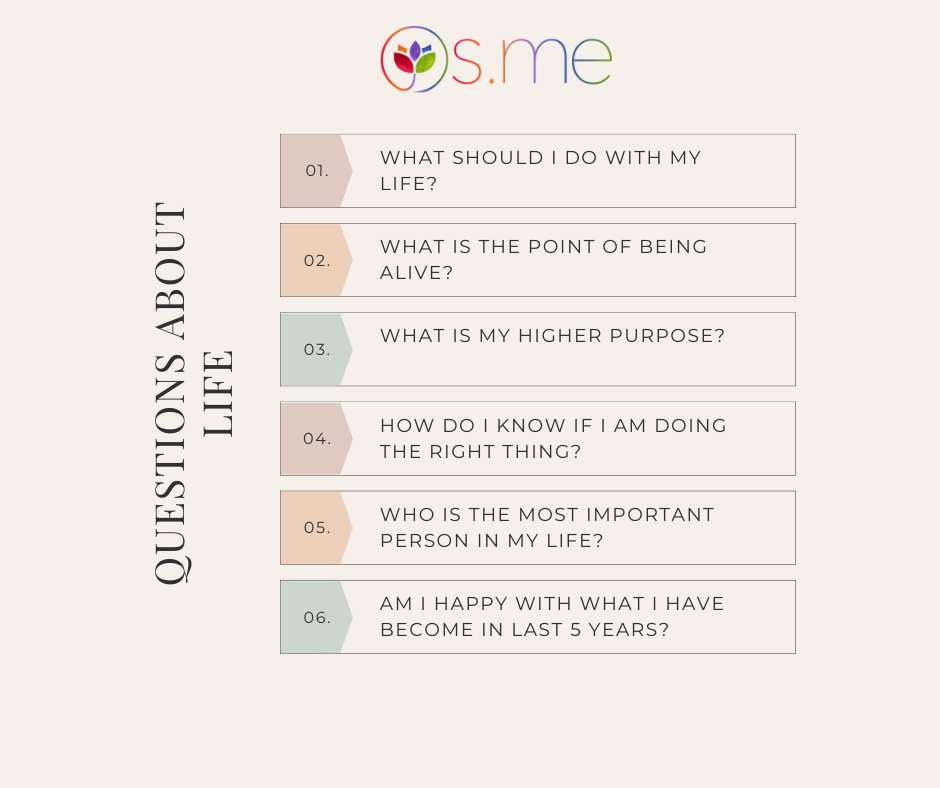
The biggest questions to ask about life are:
- How can you be happy when you will eventually die?
- What is the point of being alive if you don’t have a higher purpose?
- What will my life be, or what should it be?
- What should I do with my life?
- How will I know when I have achieved my dreams?
- What do I have to sacrifice to get there?
- When should I change course and follow a new dream?
- How do I know if what I am doing is right for me?
It’s hard to answer these questions because you are at the center of your life. You are the only one with access to your true desires and emotions. You will only know the answers to these questions by getting in touch with yourself.
Understand that getting in touch with yourself isn’t easy. It requires self-awareness and a willingness to look at your beliefs, thoughts, and actions without judgment. Most people don’t want to look too deeply into themselves because they fear what they might find. They’re afraid they won’t like what they see, so they avoid it altogether.
Because of this avoidance, most people live their lives on autopilot. It can manifest itself in many ways:
- Not taking a good look at your relationships (personal or professional)
- Not examining your beliefs about money, success, etc
- Not taking time to care for yourself -Not making time for self-care (exercise, meditation, etc.)
- Not questioning why you do what you do
- Not examining your relationship with yourself, taking time to care for yourself
It is not a list of things that you should do. It simply lists what happens when people don’t get in touch with themselves.
Why do we question the things we do and the paths we take in life?
The fact that we have to question our potential and the paths we take in life directly results from the fact that we can challenge them. It’s one of the most frustrating things when you’re first discovering this fact—there are so many things you could be doing, but you don’t know what to do. You can’t see the path through to the end, and there are real consequences for taking some paths rather than others. Perhaps if we were like animals, we’d just be able to go live by instinct, but we’re not animals—we can think about our life, and because of that, we can sometimes feel stuck.
Why do we question the things we do and the paths we take in life? Many ask about their purpose, why they’re here, and what it all means. But I believe there’s an easier way to answer these questions: why do we question what we do in life? Because it’s fun!
We challenge our lives for several reasons: to contemplate new ideas and ways of thinking about situations; to make us feel more comfortable with decisions because it helps us understand our motivations; to entertain ourselves, and maybe even out of boredom or curiosity.
We are curious creatures—we want to know what will happen next. We want to know why we do what we do and where our lives will go. We question ourselves, others, and the world around us because it gives us a sense of control over situations that otherwise might feel chaotic and out of our hands.
How do I grow and evolve in life?
How can questioning ourselves help us grow and learn more about who we are and what we want from life?
The big questions of life are the fundamental inquiries we all have from time to time. They’re the things that make us question ourselves and our place in the world. How do I get where I want to be in life? What’s my purpose in this world? What are my goals? What do I want? Why am I going after those goals?
These questions will always be with us, constantly looming on the horizon of conscious and subconscious thought. We may not think about them every day, but when they come up, when they plague us or we begin to wonder if we can trust ourselves to make tough decisions, they can motivate us to seek out answers and make determined efforts toward our desired end goals. If you’re asking yourself these big questions, don’t despair—questions are the first step toward learning more about yourself and how you fit into the world around you.
What does it mean to question yourself? It means thinking about what you want for your future, examining your priorities and values, and taking a long hard look at how your thoughts, words, and actions affect your life. It means looking back on how you got where you are now, identifying problems or opportunities that might have gone unnoticed, and making changes as necessary.
How to contemplate questions of life?
How can you start questioning yourself more effectively, and what should you pay attention to when doing so?
Do you ever wonder if you’re living a life true to yourself? Or are you just going through the motions? We all have different struggles and challenges in our lives. It’s okay if it doesn’t seem like anyone else understands those challenges because they probably don’t. And that’s okay—no one can understand your journey except for you! But sometimes, we need to step back and look at things objectively to help us determine whether or not we’re on the right path or if something is holding us back from moving forward as quickly as possible.
Are you living a life true to yourself?
It’s never too late to change your life. If you’re not living a life true to yourself, it can be a frustrating and unfulfilling experience. However, it’s important to remember that you always have the power to improve your life. You can start by reflecting on what you want from life. What are your deepest values and aspirations? Once you have a better sense of what you’re looking for, you can start making small changes in your daily routine. Over time, these changes will make a big difference in your overall satisfaction with life. So don’t wait any longer – make the change today and start living the life you’ve always dreamed of.
Do you feel the need to change your life?
Sometimes, when we’re not in the middle of a particularly stressful or difficult time, we can get caught up in living our lives without thinking about what we want from them. We all have big questions: What do I want to do with my life? Why am I still here? What is my purpose?
We have these questions because we have an innate desire to be happy. No matter how unhappy you are, it’s because you think that if you were that happy, you’d finally feel content. You think you’ll be satisfied once you get that promotion at work, when your kids grow up and move out, or when you finally find the perfect partner. But the truth is, it’s never the next thing that will make you truly content with your life—it’s the moment you choose to start being satisfied with your life. It’s easy to fall into this trap of waiting for happiness and good things to happen before we start enjoying where we’re.
What’s so hard about that? For one thing, there are a lot of competing goals in our daily lives—a dozen different things we feel we should be doing.
Being true to yourself is the most important part of living a good life. Here’s why:
- You’ll be more satisfied with your life. When you’re not true to yourself, it will feel like there’s something wrong with who you are—like some part of yourself that needs fixing or changing. This can lead to feelings of insecurity and self-doubt; these feelings aren’t fun at all!
- Other people will respect how honest and brave it was for you. If someone is being honest about who they are (instead of pretending), other people will notice and respect that honesty—even if they don’t always agree with what was said! They might even come back later asking for advice because they trust what comes from someone truly themselves. And isn’t it better when everyone gets along?
How do you feel about your life right now?
There are many things to consider when evaluating your current state of being.
Your life, for example: is it the one you want? Do you feel like you’re living the life that best suits your needs and desires? Or are there parts of your life where even if they aren’t what they should be, they are still good enough for now?
What do you want your life to look like in the future? Do you have a clear vision of what an ideal version would look like—or is it just a hazy concept that floats around in the back of your mind, undefined and blurry? Maybe some details about this ideal could be tweaked before it becomes concrete. Maybe not everything will change but somewhere within those changes lies something better than what currently exists.
How does this relate to others around me? How am I impacting them with my actions and decisions today—and how might this impact them tomorrow? What kind of relationships do I have with others in my immediate world: family members, friends, and acquaintances? Am I treating these relationships honestly and respectfully, or am I neglecting them without realizing how damaging this neglect is (both emotionally and physically)?
Some basic questions to ask yourself:
Are the goals you have for yourself your own?
It’s time to take stock of your life and make sure that the goals you have for yourself are yours. After all, who knows better than you what’s important to you? If a goal doesn’t align with your values, beliefs, or priorities, it might not be the right goal.
To find out if this is the case, ask yourself these questions: What are my goals? What do I value most in life? What are my top priorities? How will I measure success?
Are you holding onto something that you need to let go of?
Are you holding onto something that you need to let go of?
Are you stuck because of a fear of change or the unknown? What if letting go of what no longer serves you is the best way forward? We can help.
Do you feel like sometimes your life is out of control?
Life is out of control when:
- You don’t have control over your emotions.
- You don’t have control over your thoughts.
- You don’t have control over your actions.
- You don’t have control over your time.
Who is the most important person in your life?
This question can be tricky, especially considering how much time and energy you spend on each relationship. Family, friends, spouse, and children all deserve a lot of love and care from you—but many others also play a role in making up the fabric of what makes up who we are as people.
You may have mentors that helped shape your career or teachers who encouraged you to follow dreams that seemed impossible at the time. Coaches have helped us succeed on the playing field, while doctors have saved lives during emergencies.
Recognizing these relationships and giving them their due attention when needed is important!
Are you letting other people’s opinions influence what you do with your life?
Do you feel like you are letting other people’s opinions influence what you do with your life?
Ask yourself if the people in your life have positive or negative things to say about your actions. It might be time for a change if it’s mainly negative.
What kinds of things do they say? Do they support your goals, or do they discourage them? Can you surround yourself with more supportive people who will help push toward those goals rather than hold them back?
Are you happy with who you’ve become over the last five years? The last year? The last month?
It’s essential, to be honest with yourself when answering this question. If you’re unhappy with who you’ve become in the last five years, or even just the last year, there is no shame in trying to change it. You may not be able to change everything, but that doesn’t mean it’s not worth trying!
Don’t compare yourself to others, and make sure your attitude is gratitude. This can help take some of the pressure off of making changes and allow you to focus on what is important instead of worrying about what others think.
How to learn more about yourself?
How you think about your life will affect how you live it. Most people don’t take the time to think about their lives and what they want out of them, but when they do, they find the results powerful and liberating. Life is a journey; sometimes, we must slow down long enough to enjoy it.
Think about these questions and learn more about yourself:
Important life questions to ask yourself:
- What activities bring me joy?
- What type of work do I enjoy? What type of work fits my personality? How can I make use of my strengths in this career choice?
- Are there any limiting beliefs that hold me back from achieving success or experiencing happiness in my career/job or relationships with family members/friends/partners/bosses (etc.)? If so, what are those limiting beliefs based on (e.g., religion)? How can I overcome these self-limiting thoughts so that I’m able to achieve greater satisfaction with my life overall?”
Conclusion
We hope these questions have helped you think about your life and what’s important. If any of them resonated with you, then maybe it’s time for some changes! Do you have thought-provoking life questions or life-changing questions to ask yourself, participate in os.me community Q&A to hear insights and real-life experiences from the community members.

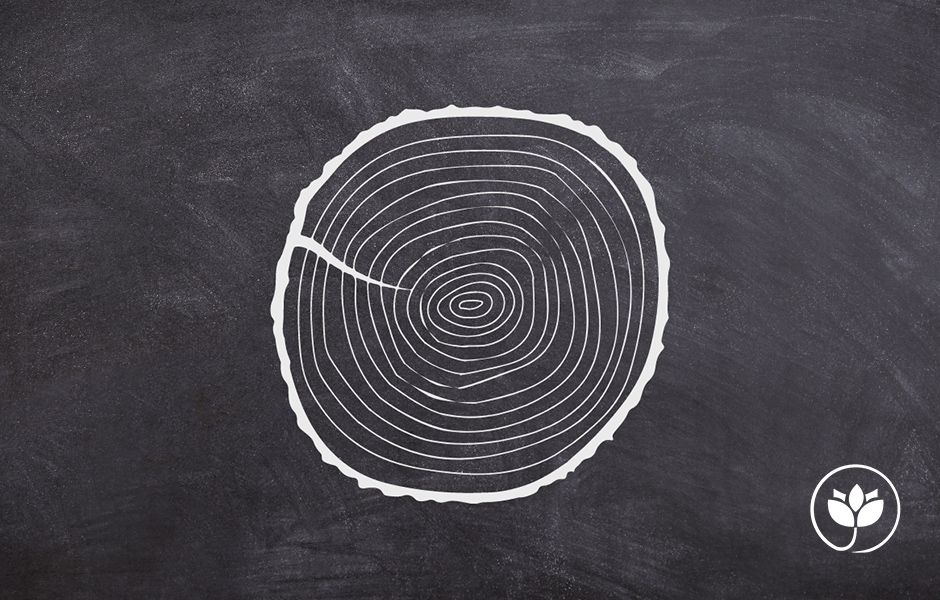
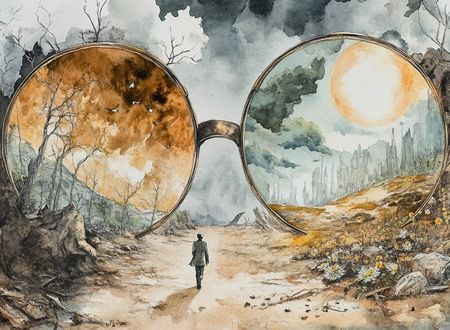
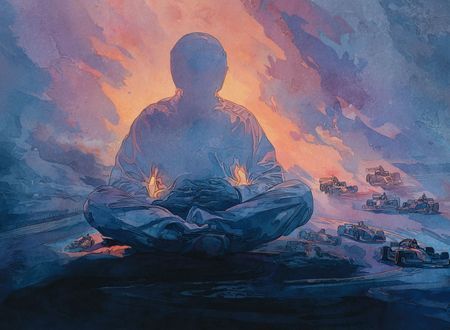
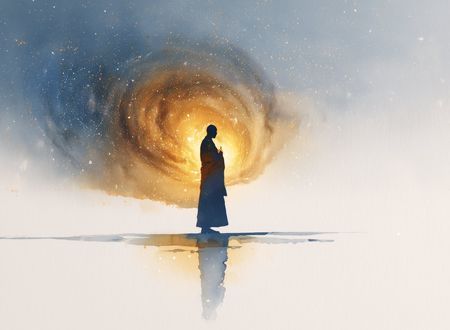




Comments & Discussion
0 COMMENTS
Please login to read members' comments and participate in the discussion.